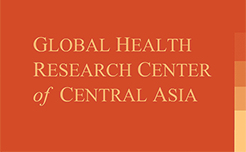In collaboration with the Social Intervention Group, GHRCCA leadership helps facilitate ongoing research projects in Mongolia, Kazakhstan, and Kyrgyzstan. To see the full list of completed projects click here.
CURRENT RESEARCH
Ongoing epidemiological and intervention research focuses on the populations who are most at risk or who have HIV/AIDS, hepatitis C, and sexually transmitted infections, including injecting drug users, migrants, men who have sex with men (MSM) and sex workers.
Increasing Involvement of MSM in the Continuum of Care in Kazakhstan –Project UNI (2016-2021)
This study aims to test the efficacy of a social network-based HIV intervention designed to increase the number of men who have sex with men (MSM) who use drugs across Kazakhstan into the continuum of care. The study involves a stepped wedge clinical trial of a social-network based intervention across 4 cities in Kazakhstan with 1,000-1,400 MSM who use drugs. The intervention is designed to utilize MSM as experts and leverage social network processes to increase the number of MSM in Kazakhstan to be engaged in the HIV continuum of care. The project has two primary aims. One is to test the efficacy of the social network-based intervention for increasing the following proportions among MSM who use drugs in Kazakhstan: participants visiting a service provider to get tested for HIV; HIV-infected participants initiating HIV-related care; HIV-infected participants receiving ART; and HIV-infected participants achieving 90% adherence to ART. The second primary aim of the project is to test the efficacy of the intervention for increasing service use for issues that co-occur with HIV, including drug abuse, HCV infection, and other sexually transmitted infections (STIs). In addition to these two primary aims of the project, a secondary aim is to describe the social network structures and dynamics and each city’s social context and service structure and conduct exploratory analyses for potential moderating effects of these factors with each of the outcomes identified above.
Improving HIV Service Delivery for People who Inject Drugs (PWIDs) in Kazakhstan (2015-2020) BRIDGE
This five-year study is funded by the National Institute on Drug Abuse (NIDA) and will be implemented in four sites: Almaty, Shymkent, and Karaganda and Temirtau cities. The proposed study is designed to evaluate the implementation and effectiveness of an enhanced HIV service integration package (BRIDGE) that may be scaled up in Kazakhstan’s vast network of needle-syringe programs (NSPs) for PWID. This package includes low threshold strategies of peer-driven recruitment, HIV counseling and rapid testing (HCT) in NSPs conducted by HIV care clinic nurses, and ARTAS, CDC’s highly effective case management strategies for linking PWID to HIV care. BRIDGE is systematically designed to address specific service barriers to testing PWID for HIV, linking them to HIV care, and promoting ART initiation. This study will employ an innovative stepped wedge design to evaluate implementation and effectiveness on improving linkage to HIV care and initiation of ART in 24 NSPs located in 4 geographically disparate Kazakhstani cities using site-level data collected from NSPs and HIV clinics. The study builds on the investigative team’s extensive HIV intervention research among PWID in Kazakhstan in collaboration with the Republican AIDS Center over the past decade. It addresses implementation research questions to improve and integrate HIV service delivery systems for PWID that are not only important to the region, but have relevance to other countries that have concurrent injection drug use and HIV epidemics.
Evaluating a Microfinance Intervention for High Risk Women in Kazakhstan (2014-2019) NOVA
This five-year study is funded by the National Institutes of Drug Abuse (NIDA) to examine the efficacy of a combined HIV and microfinance intervention to reduce biologically confirmed sexually transmitted infections (STIs), and new incidence of HIV and HCV, as well as reported sexual and drug risk behaviors among 520 women who have injected drugs and have been engaged in sex trading in Kazakhstan. Kazakhstan is one of nine countries worldwide that has experienced a continuing rise in HIV infections (>25%) over the past decade. The epidemic is exacerbated by structural forces such as poverty and a lack of employment options for people who use drugs, especially women, which makes transactional sex a survival strategy. The proposed study will test combination HIV prevention and microfinance interventions. We hypothesize that increasing financial literacy, enhancing vocational skills required to fill marketable positions in the local economy, and beginning a personal savings program, combined with HIV risk reduction, will lead to significant reductions in study outcomes compared to an HIVRR intervention without a microfinance intervention. A qualitative component to examine factors that facilitate or impede women’s ability to participate in and benefit from a microfinance intervention, and a cost and cost effectiveness analysis will provide additional data to inform the program. Study sites: Temirtau and Almaty cities.



Connect with us